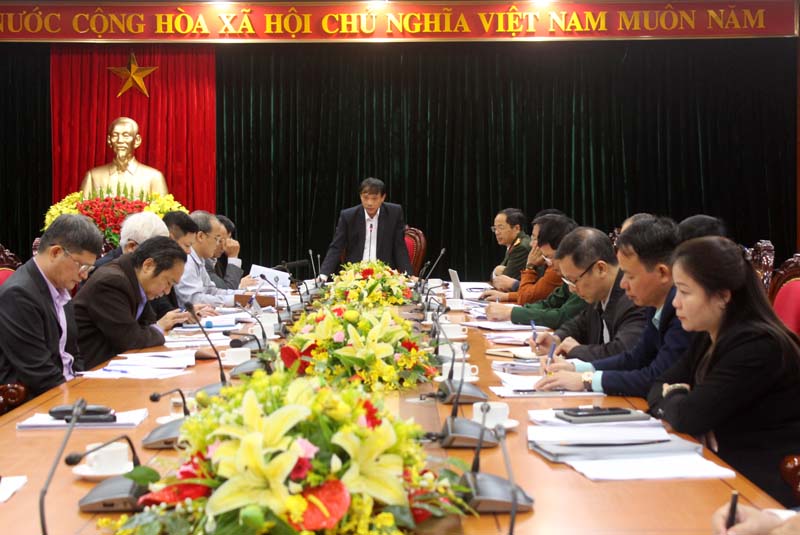
(HBO) – The Hoa Binh People’s Committee has held a conference to review the five-year socio-economic situation in 2016-2020 and define a five-year socio-economic development plan for 2021-2025.
Between
2016 and 2020, the average annual gross regional domestic product (GRDP) of the
province has reached 9.15 percent. By 2020, agriculture, forestry and fishery sector
is expected to account for 19 percent of the GRDP, industry-construction 47
percent, services 29.2 percent, and product taxes 4.8 percent.
Meanwhile, the per capita GRDP is expected to
reach 64 million VND, State budget collection to come to 5 trillion VND, and
the number of effectively operating businesses and cooperatives to amount to 2,470
businesses, doubling that of 2015.
The
total export turnover will exceed 1.9 billion USD, 3.5 times over the figure in
2015. The rate of urbanisation will reach 25 percent, and 45 percent of
communes along with three districts will be recognised as new rural areas.
Participants agreed on the overall targets for the
2021-2025 period, with the province to mobilise all resources to promote rapid
and sustainable economic growth, with industry being the driving force, tourism
as the spearhead and agriculture moving towards commercial scale production.
The material and spiritual life of people will be improved remarkably, and ethnic
cultural identities preserved and developed.
The province will also enhance the management
capacity and efficiency of authorities at all levels and proactively cope with
climate change, make reasonable use of natural resources, well control
environmental pollution, and ensure defence-security.
Hoa Binh will strive to become a middle-range province
by 2025 with all economic indications and most social indices ranked in the
middle-range group among all localities in the country.
Some
specific targets for 2021-2025 are: average economic growth of 9.5-10 percent,
per capita GRDP of about 100 million VND, and annual State budget collection
increase of 17 percent. The total import-export turnover in 2025 is expected to
rise by 3.5 times compared to 2020. The rate of urbanisation will surpass 35
percent./.
The Standing Board of the Hoa Binh provincial Party Committee has agreed in principle on a proposal by the Standing Board of the Party Committee of Hoa Binh city to gather feedback on the city’s 1:2000 zoning plan, which forms part of its broader urban development strategy.
Hoa Binh province has made notable progress in public administration reform and digital government development, with the satisfaction index among citizens and businesses reaching over 84%, according to recent government evaluations.
Thanks to great efforts by local authorities in recent times, the governance and public administration performance of Mai Chau district has been significantly improved.
In the afternoon of June 6, the Party Committee, the People's Council, the People's Committee and the Fatherland Front of Lac Son district solemnly held a meeting to celebrate the 139th anniversary of the district's founding (1886–2025) and the 79th anniversary of the establishment of the district's Party Committee (1946–2025). There was the attendance of Mr. Bui Van Thang, the Vice Chairman of the Provincial People's Council; Mr. Quach Tat Liem, the Vice Chairman of the Provincial People's Committee; Ms. Dang Bich Ngoc, the Deputy Head of the National Assembly Delegation of the province; as well as the former leaders of the province and district through various periods, who are the natives of the district.
Implementing the Politburo’s Resolution No. 57-NQ/TW on breakthroughs in science – technology, innovation, and digital transformation is a golden opportunity for the northern mountainous province of Hoa Binh to renew growth model, improve competitive edge and shorten digital gap.
Resolution 57-NQ/TW, issued by the Politburo on December 22, 2024, identifies sci-tech, innovation, and digital transformation as strategic breakthroughs to build a developed and prosperous nation. In Hoa Binh province, this spirit is not just a slogan, it’s being put into action through concrete initiatives that form a "new development triangle”: digital citizenship, digital economy, and digital administration.



